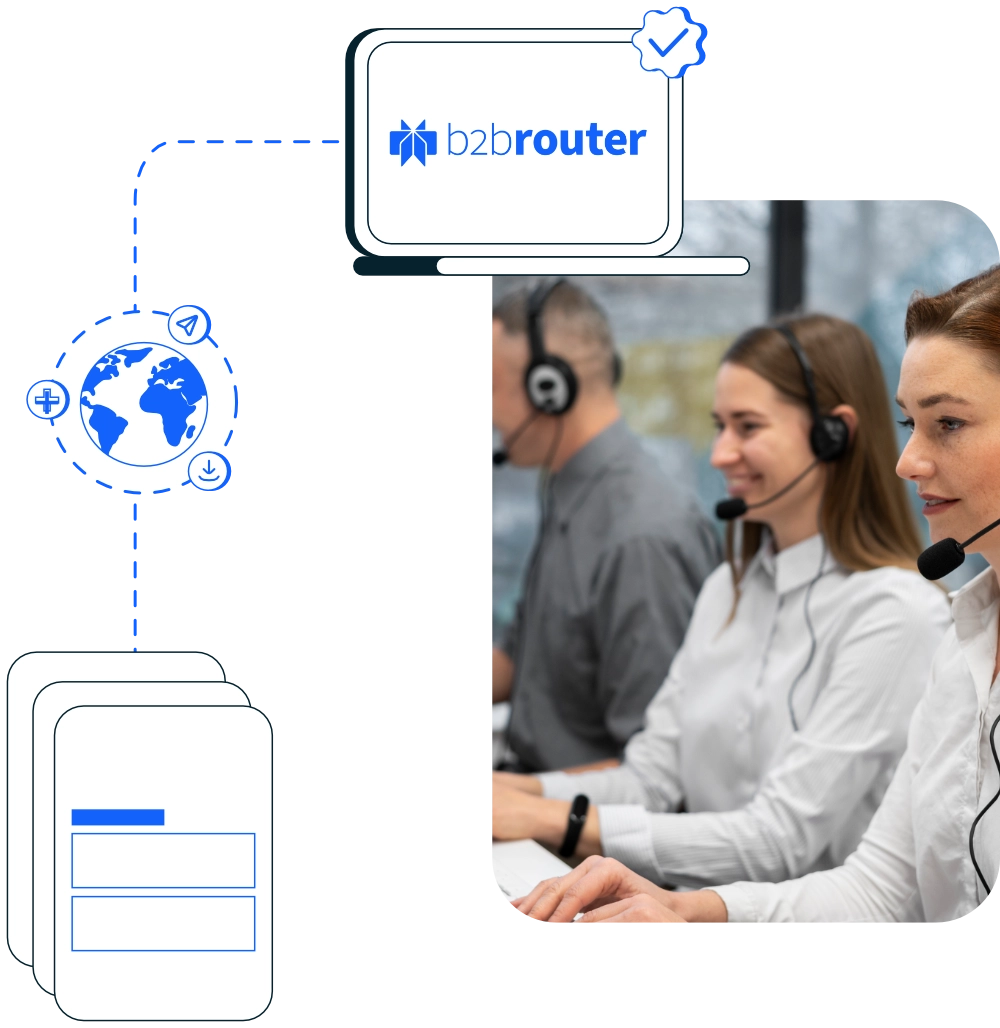Electronic invoicing in Australia is being implemented in phases. Since 1 July 2022, all Commonwealth government agencies are legally required to receive electronic invoices through the Peppol network. This means that while B2G e-invoicing is mandatory for the public sector, suppliers are currently not obligated to send e-invoices, but they are encouraged to adopt the system. In the B2B sector, electronic invoicing is still voluntary. However, under the Business E-Invoicing Right (BER), if a business requests an e-invoice, its trading partner must comply. This obligation currently applies to large businesses and will extend to all businesses by 1 July 2025.
The Peppol framework, managed in Australia by the Australian Taxation Office (ATO), ensures standardized and secure document exchange. E-invoicing through Peppol supports interoperability between systems, both within Australia and internationally. B2Brouter is an accredited Peppol Access Point that allows businesses to send and receive both B2G and B2B e-invoices, and to operate across borders with partners in other Peppol-compliant countries, ensuring legal and technical compliance.
The next sections provide an overview of key implementation dates, legal obligations, formats, and technical requirements.
Important dates
1 July 2025
Under the BER, all businesses must send e-invoices upon request. This extends the obligation beyond large companies.
January 2026 (preliminary)
ATO expected to evaluate the next implementation phase for mandatory e-invoicing. Subject to policy review.
Legislation
- B2G invoicing status
Since July 2022, all federal agencies must receive e-invoices via Peppol. Sending is optional for suppliers.
- Accepted formats:
By 15 May 2025, the BIS 3.0 format will be phased out and replaced entirely by PINT A-NZ. PINT A-NZ will be mandatory from November 2024.
- Delivery channels
Invoices must be exchanged through Peppol, using certified Access Points for secure and traceable delivery, such as B2Brouter.
- Regulating authority
The Australian Taxation Office (ATO) manages and enforces e-invoicing policies and Peppol compliance.
- BER framework
Businesses must send e-invoices if requested under the Business E-Invoicing Right (BER) framework.
- Archiving requirements:
E-invoices must be stored for at least 5 years. Storage can be local or abroad if access is guaranteed. B2Brouter ensures full compliance with this rule.
Voluntary B2B invoicing
Businesses can choose to adopt e-invoicing. It becomes mandatory upon request under BER.
Peppol Access Points
All senders and receivers must connect through Peppol-certified Access Points to ensure interoperability.
Send e-invoices to Australia securely with B2Brouter
Peppol-certified Access Point
Send and receive e-invoices via Peppol with a fully authorized platform that meets national and international standards.
Cross-border invoicing made simple
Connect with global partners using Peppol. B2Brouter enables seamless cross-border invoicing with legal certainty.
Full B2G and B2B compliance
Easily send e-invoices to public agencies and private clients across Australia under current legal frameworks.

Certifications
B2Brouter is certified with the ISO 27001 standard on information security management, certified as a Peppol Access Point Service Provider and a member of the EESPA.





